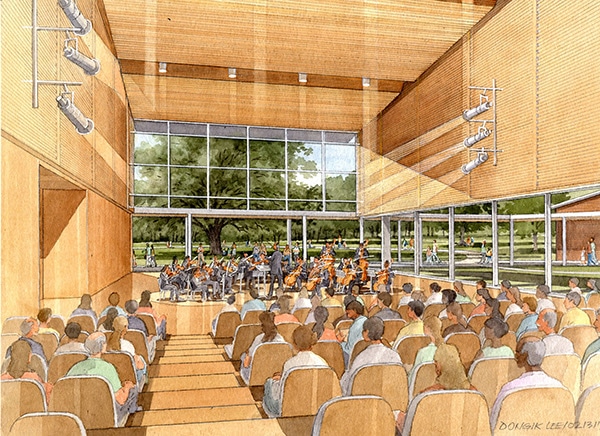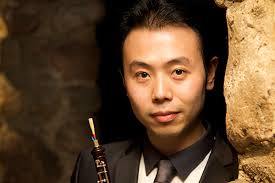Boston keeps on growing Tanglewood
mainThey’ve announced another $30 million building.

press release:
The Boston Symphony Orchestra announces a major new investment in the future of Tanglewood that will broaden its reputation as one of the premier festivals in the world and famed summer home of the BSO since 1937, as well as that of its acclaimed summer music academy, the Tanglewood Music Center, founded in 1940. Launching a new chapter in the illustrious festival’s 80-year history, Tanglewood has announced plans for the construction of a new multi-use, multi-season four-building complex designed to support the performance and rehearsal activities of the Tanglewood Music Center and be the focal point of a new initiative, the Tanglewood Learning Institute, offering wide-ranging education and enrichment programs designed to enhance the patron experience.
Scheduled to open in summer 2019, the new building complex will be designed by William Rawn Associates, Architects, and will be the largest building project at Tanglewood since the construction of Ozawa Hall (1994), also designed by William Rawn Associates. Reed Hilderbrand will serve as the project’s landscape architects.





Another example of classical music’s decline. (Not)
More precisely, another example of how rich people in the big, wealthy cities can and do support the arts while, in the meantime, the midsize and small markets languish or die.
But it’s happening someplace, Ted.
Well someone has to ! In the UK ( thanks to the Bankers) Government local and national can’t.
There are “rich people” “wealthy cities” here also and most music groups now educated and share widely.
No, they seem to always find the money for new infrastructure, the signs of decline can be found elsewhere and are incontrovertible, for example the inability to be relevant to any audience other than the privileged and initiated. Please don’t be critical of those who see the crisis for what it is and call for change, because those people truly care about the future of this great art-form. And what Fred says…
The reasons for the decline are many and complex. Among the least of these is some silly notion having to do with elitism.
Whether or not you consider “elitism” (your word not mine) to be an issue really depends on which particular current interpretation of it’s meaning you subscribe to, but let me try to unravel this notion that we face complex problems. It’s not that the problems are complex, it’s that they are simple but intractable. The future of this art-form has for some considerable time, been in the hands of people whose personal interest is served by things staying just the way they are. Once these things become inter-generational, as they are now, then we really have a problem. How intergenerational? Read Constant Lambert’s “Music Ho! A study of music in decline” written in the 1920s, to see how little things have changed. There has developed over this period a shared common interest between educators and their institutions, administrators and other significant stakeholders such as music publishers who have had their own personal stake in things bulwarked by the resources provided to them both directly and indirectly by well meaning governments and private donors. This coalition, which I will call for want of a better word the ‘Establishment’ has conceded little to current audiences other than to proffer the bargain “we’ll give you the old stuff you do want to hear, only if you let us give you a tiny drip feed of the new stuff you don’t”. They have conceded nothing of substance whatsoever to the much needed future audiences. The solution to all this? As simple as it is unlikely to ever happen: A recognition that the key stakeholders are: The creators (i.e. composers), the performers and the audience. Everybody else is a facilitator working in the service of the other three. The final arbiter however must be the audience both present and future, because there you have it, the lack of consideration given to that sector is how we got here. Why not let the people decide?- it’s all there in Act 1 of Die Meistersinger… Thank you, have I won the John Borstlap award for longest ever SD comment yet?
Did you ever hear of a thing called a ‘paragraph?’
I hope they name it Silverstein Hall. Would be a nice gesture.
That would certainly be nice. Silverstein was a great and much loved concertmaster, but I suspect that, unless the hall is named after a donor, it’s more likely to be named after Leonard Bernstein. His career began and ended there. Other than Koussevitzky there is no musician more closely associated with Tanglewood than Bernstein.